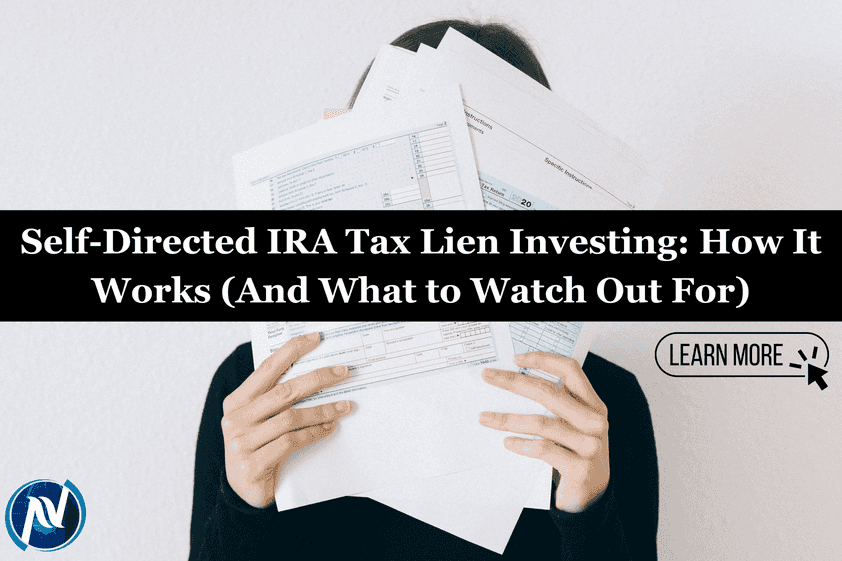Self-Directed IRA Tax Lien Investing: How It Works (And What to Watch Out For)
Tax liens might not sound glamorous, but true. But for some Self-Directed IRA investors, it offers an unusual path to outstanding returns. The concept is simple: when property owners fall behind on taxes, local governments still need the money. So, they auction off the debt to investors. If you buy a tax lien, you pay …

Tax liens might not sound glamorous, but true. But for some Self-Directed IRA investors, it offers an unusual path to outstanding returns. The concept is simple: when property owners fall behind on taxes, local governments still need the money. So, they auction off the debt to investors. If you buy a tax lien, you pay those overdue taxes. And in return, you’re owed repayment with interest. In some cases, if the owner doesn’t pay, you could even end up with the property itself. It’s a process that sounds straightforward, but when done through a Self-Directed IRA, it comes with a few extra layers.
How Tax Liens Fit into a Self-Directed IRA
You can use a Self-Directed IRA to invest in tax liens just like you would with any other alternative asset. But it has to be the IRA making the investment. Not you. That means the funds come from the IRA, and any returns—whether in the form of interest or eventual property ownership—go back into the IRA.
Many investors use checkbook control for this kind of investing. It allows the IRA to respond quickly to auctions and deadlines without waiting on a custodian to approve each move. That flexibility can make the difference when you’re bidding on tax liens in competitive counties.
It’s also worth noting that tax lien investing usually happens at the local level. That means each state—and sometimes each county—has its own rules. Some offer tax deeds instead of liens. Some have longer redemption periods. If you’re using retirement funds, you’ll want to be extra familiar with the process before placing your first bid.
What to Watch Out For
As with any investment, tax liens come with risks. Not every lien pays off quickly—or at all. The property owner might take years to settle their debt. Or the property itself might not be worth the hassle if you end up owning it.
That’s why research is everything. You’ll want to understand the property tied to the lien, its value, its condition, and whether there are other liens or legal issues involved with the property. That kind of due diligence is especially important when the money at stake belongs to your retirement account. You’re saving for retirement here, after all! You don’t want to skip due diligence that could amount to life-changing money in your retirement account by the time you hit retirement age.
And just like with other Self-Directed IRA investments, you have to steer clear of prohibited transactions. You can’t buy a lien on a property owned by you or your family. You also can’t buy a lien with personal funds and transfer it into the IRA later. Everything has to flow through the IRA properly from the start.
Another thing to watch for: some liens don’t produce any return at all. If the property owner pays back the debt immediately, you might earn only a small amount—or nothing. That’s not necessarily a loss, but it’s something to factor into your long-term strategy.
Is It the Right Fit for Your IRA?
Tax lien investing isn’t for everyone. It takes patience, attention to detail, and a willingness to learn how local governments operate. But for investors who want to add diversity to their retirement plan—and are comfortable doing a bit of legwork—it can offer an unusual and potentially rewarding path.
Want to learn how tax lien investing could work inside your Self-Directed IRA? Call American IRA at 866-7500-IRA and we’ll help you explore whether it’s a fit for your goals and risk tolerance.
Get 15 minutes of free expert advice.
If you're not sure whether a self-directed IRA is right for you, schedule a 15-minute call with our industry veteran team. We'll explain the possibilities, help you evaluate your options, and answer all your questions - no pressure, no obligations.
